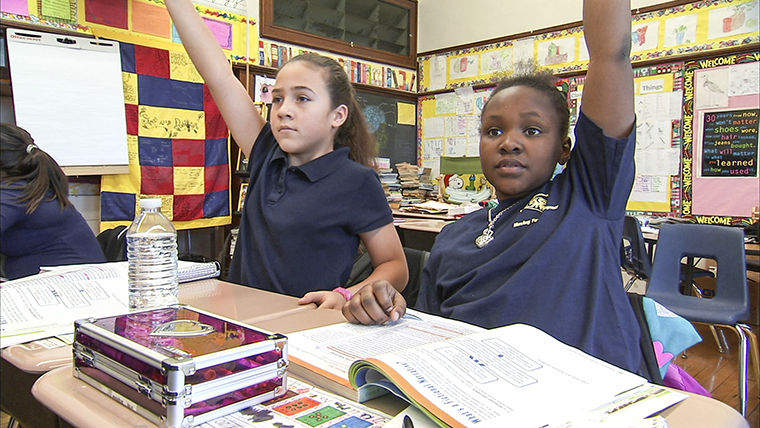Web series addresses Chicago Public School closings
The online documentary film series “The School Project” explores the issues faced in public school systems nationwide.
February 2, 2015
in 2013, Chicago Public Schools announced that 49 elementary schools would be shut down due to budget cuts.
When the news broke, five film production companies began what is now known as “The School Project,” a six-part web series that covers public education in Chicago.
Laura Wilson, online outreach director for “The School Project,” said the series aims to highlight the importance of public education in American society.
Wilson said each production company created a video for the series.
“We hope to generate more conversation that’s a little more granular and deeper than just the 24-hour news cycle about schools in Chicago,” she said.
The Kindling Group, one of the production companies involved with the project, focused on creating a website for the series that would not only showcase the films as they are released, but also give the community a chance to discuss public education in the wake of the closings, Wilson said.
“[The objective of the website is] to encourage people who have been affected by some of the policy changes, the closings, the standardized testing and gather individual stories and experiences and share them with the world,” Wilson said.
Bob Hercules, co-executive producer of the project, said as documentary filmmakers, it was important to cover these issues in greater depth.
“We thought [the school closings] were such a profound story because it was going to be one of the largest closings in American history,” Hercules said. “We were concerned with what it said about public schools in America and ultimately how it would affect, in a sense, American democracy.”
The second film in the web series was released on Jan. 22 and follows Rosemary Vega and her family, who were directly affected by the school closings. Vega was outspoken and determined about the problems in the public school system, which is what drew “The School Project” to her, Hercules said.
“Filmmakers are always looking for people that are transformed by an experience,” Hercules said. “We liked [Vega’s] story because she was a person who really was transformed by this experience—she was an average mother with kids, and there was nothing spectacular about her until this happened.”
After meeting Vega and her family in March 2013, “The School Project” team followed her for more than a year, from the initial announcements of the school closings to their involvement in the protests that took place after the closings occurred.
Wilson said the audience needs to understand the community’s voices count and that this issue is not yet solved.
“[We are] collecting those stories so we can continue to deepen the conversation and make sure it’s not forgotten the next time a big shakeup in schools comes around,” Wilson said.
Valerie Mensah-King, development team member at Free Spirit Media production company, said the audience should take away the idea that the issues discussed parallel issues public schools are facing on a national scale.
“It definitely is able to broaden the conversation about education, not just in Chicago, but public education nationally,” Mensah-King said. “The fact that [‘The School Project’] is split up into six segments speaks to the fact that it’s a multidimensional issue and there are lots of stakeholders involved.”
Hercules said his goal for the audience is for people to have more complex discussions about the state of Chicago Public Schools.
“One of the values of our series is that we’re having live events for each of the six episodes where people can come, watch them, comment on them and express themselves,” Hercules said.
Issues regarding education are going to keep coming up in Chicago, and nationwide, if people do not discuss problems like filling gaps and preventing more closings, Wilson said.
“[The affected] families have found their receiving schools and have found a balance after that moment of crisis in 2013,” Wilson said. “This is going to keep coming up if we don’t solve these critical issues. [We have to find out] how we can prevent that feeling of hopelessness from happening to families again three years from now.”








